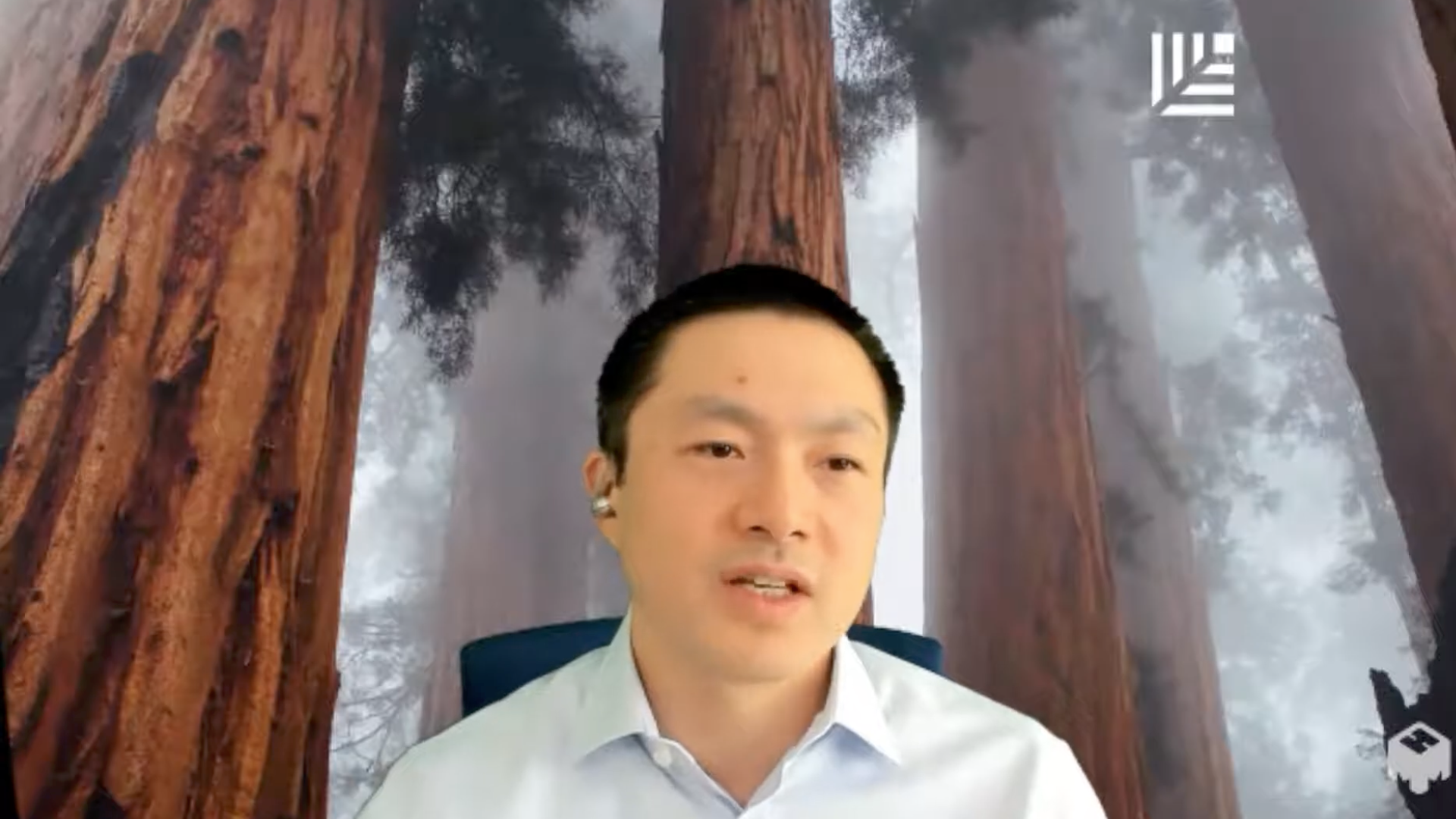Alfred Lin’s Fireside Chat at South Park Commons
Last month, the South Park Commons community hosted Sequoia Capital partner Alfred Lin for a virtual fireside chat. In a wide-ranging…

Last month, the South Park Commons community hosted Sequoia Capital partner Alfred Lin for a virtual fireside chat. In a wide-ranging conversation moderated by South Park Commons member Avichal Garg, Alfred touched on topics like how to pitch for a seed and Series A round, building a customer-centric culture, and what really matters to investors. Read on for snippets from the fireside chat at South Park Commons.
So what is SPC? We’re a self-organizing community of technologists, tinkerers, and domain experts based in San Francisco. We are building new (and sometimes unorthodox) ventures — ranging from enterprise startups and consumer apps, to open source ML and civic-tech projects. We come together, virtually and in the physical world, to learn from each other, challenge ourselves, and validate new ideas.
Our members also host a recurring events series. Our goal is to bring new and exciting ideas and technologies into the community as well as valuable learnings from those who have first-hand experience building their life’s work. In the past we’ve hosted Silicon Valley VCs and CEOs like Reid Hoffman and Mike Kreiger, leaders like CEO of U.S. Digital Response Raylene Yung and SF Mayor London Breed, and domain experts like Nobel laureate Dr. Saul Perlmutter, experimental physicist Dr. Rana Adhikari, and Howard Hughes Investigator Wendell Lim, amongst many others.
Our on-the-record talks are posted to the SPC Youtube channel. You can also sign up for our events mailing list or newsletter to stay in the loop.
September 29th, 2020 Fireside Chat with Alfred Lin
As a partner at Sequoia Capital, Alfred Lin has a stellar reputation as a razor sharp, highly engaged investor and inspiring advisor to young entrepreneurs. In Silicon Valley, Alfred is respected as a master operator, having scaled Zappos, Tellme, and Link Exchange from their founding stages to profitability to IPO. Alfred’s extraordinary experience on both sides of the startup journey informs his approach to investing. At Sequoia, he focuses on consumer, mobile, and enterprise investments and is a Director of Airbnb, Cobalt Robotics, Dia & Co., Dolls Kill, DoorDash, Houzz, NEXT Trucking, Truework, and Zipline. “I find a variety of products and technologies interesting,” Alfred has said, “but what they have in common is that they have disruptive business models.”
What Matters (0:00)
- Don Valentine, the “grandfather of Silicon Valley venture capital,” often asked founders one question to understand who they are and why they started their company: “What matters?” Internally at partner meetings, he’d slightly refine that and ask, “Will this company matter in 10 years?” I think one thing people forget about when pitching is tying all that together.
- At Seqouia, we don’t buy low and sell high. Our job is to become partners with the founders and the management teams that we back from idea to IPO and beyond.
- As a founder, you should screen investors for whether they are going to be a sparring partner during good times and a shock absorber during bad times. As a partner, I want to be as trusted as the management team members. Am I the first call you make if there’s something that you’re struggling with or debating?
Best Pitch Practices (3:29)
- Get good at telling the story of why your company matters. Every chance you get you can A/B test the words that you use. Does the story resonate better with engineers if you tell it one way or with salespeople another way?
- I’m always surprised that founders don’t ask for feedback about their pitch at the end. I can give you pointers on making the pitch better and even making your business better.
- Part of developing trust at a pitch is to be able to show me the bad data and know that I’m not going to flip out. There are people who will flip out though, so it’s also a way for you to screen for those you’ll want to work with over the long run.
- At the seed stage when it’s 1–2 people and an idea, it’s more riffing about why you think the idea is good. The data might not necessarily be about your company, but about the market and why it matters.
Rapport as a Priority (8:56)
- Building rapport is quite important and you can do that over email, over text, or over video, as well as in person. I’m an introvert, so I don’t have a problem sitting at my desk all day long. Now though, even I’m getting tired of being cooped up.
- I develop rapport by asking questions like, “Tell me who your worst reference is and why.” You can see how introspective and honest someone is by their response. If you can’t be transparent, we haven’t established the right level of trust yet to be business partners. During this time period when we can’t meet in person, references matter even more.
- When you have to pitch over the phone or over Zoom, substance comes through more than showmanship. It’s an equalizer.
Remote Work Beyond Silicon Valley (11:04)
- I think after COVID most companies will go to a hybrid work model. There’s some center of gravity at a headquarters. I think when people need to collaborate, they need to be in person.
- I don’t think Silicon Valley will lose its edge on developing lots of great companies. But there will be other places in the world that will pop up too.
- When the pandemic is over, you’ll want to live where your friends are. If your friends happen to still be in Silicon Valley, you’ll be here. If they all flock to Colorado because it’s a better quality of life, then tech will pop up there. And it has. Some of the secondary and tertiary cities will become much more interesting places to both live and build companies.
Usefulness Versus Speculation (16:22)
- We will continue to see wonderful companies being created in the move to the cloud. But the valuations are such that maybe people are forgetting the consumer is still the majority of our GDP.
- There are huge tailwinds in e-commerce. Amazon is benefiting. But Etsy has also done extremely well. Why are there not more interesting marketplaces now being built?
- We’ve always been very interested in the blockchain. Cryptocurrency seems more speculative as a market though, and I want to separate usefulness and speculation.
- The tricks of B2C sales are transferable to B2B because as the price comes down for each user, and each user is making a transaction, it becomes quite valuable to just sell directly to the consumer. That sort of bottom-up selling has been useful for a number of companies, whether it’s Dropbox or Slack or Zoom.
Customer Centricity (21:18)
- Culture, customer service, and customer happiness are daily habits. You’ve got to put in the time. It’s like fitness. To go on a crash diet when you know you’re unhealthy is not the way to maintain fitness.
- If you want a great customer-centric company, you need a customer-centric culture. For me, culture comes down to values and the beliefs. What are the actions that you’re looking for and how do you operationalize those actions? And what are the narratives that come out of that? What are the customers going to say of your customer-centric culture?
What Sequoia Seeks (25:17)
- Every VC looks for approximately the same things: a great team attacking a large market, with a specific idea for a product or service that addresses that large market, and a differentiated way of pricing or conducting business. But if you just look at those things, you end up with either a null set because everybody’s looking for it or you end up with something that is close to perfection. And as an investor, if you invest in something close to perfection, you overpay, so you’re going to make less money.
- Some investors look for product market fit. Others like people who are scrappy and able to bootstrap. I like founder-market fit.
- In our Company Design Program, where we provide early-stage founders hands-on curriculum to help them build enduring companies, we talk about the importance of being different, not just better. To do that, you need to reinvent on behalf of the customer.
- We’re not spray and pray. Each partner at Sequoia makes one or two investments at the seed level and one or two investments at the series A each year. We’re not high volume, but hopefully, we’re just as thoughtful as we ask you to be when you come pitch us.
Thank you for reading and we hope to see you at our next South Park Commons event (sign up here!). If you’re interested in membership, please apply on our website and one of our members will reach out.
